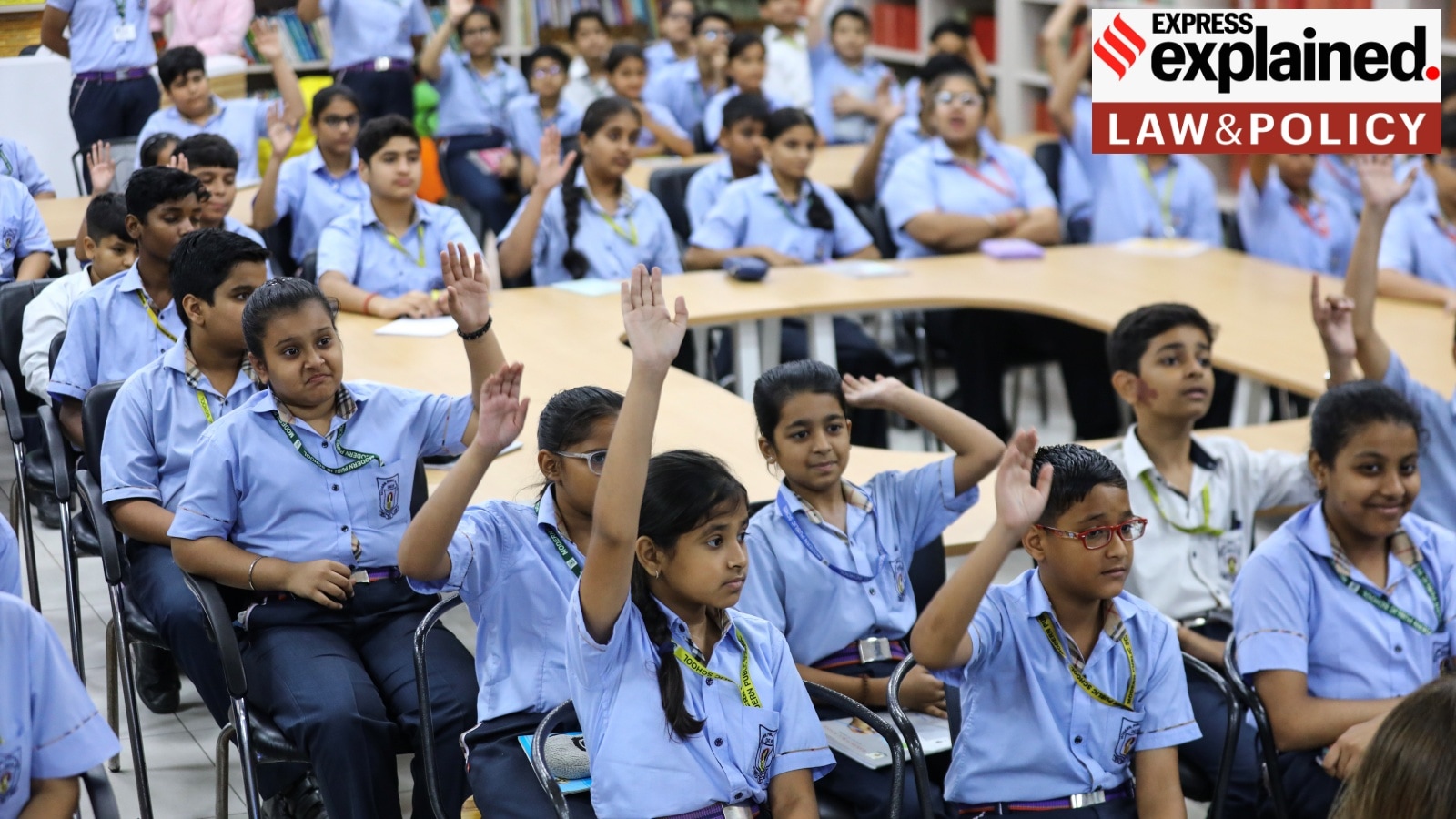Why the Delhi HC ruled that Directorate of Education can regulate private school fees only to prevent profiteering
The court examined two key questions: whether the DoE could prevent private unaided schools from increasing fees under the Delhi School Education Act (DSEA), 1973, and the Delhi School Education Rules (DSER), 1973, and whether it could order them to refund what it considered to be excess fees
 The case arose from disputes involving two Delhi schools, Bluebells School International and Lilawati Vidya Mandir Sr Secondary School. (Express photo by Abhinav Saha)
The case arose from disputes involving two Delhi schools, Bluebells School International and Lilawati Vidya Mandir Sr Secondary School. (Express photo by Abhinav Saha)The Delhi High Court has held that the Directorate of Education (DoE) cannot interfere with the fee structure of private unaided schools except to prevent “profiteering, commercialisation, or the charging of capitation fees”.
A Division Bench of Chief Justice Devendra Kumar Upadhyaya and Justice Tushar Rao Gedela, in a judgment delivered on Thursday (October 9), said the DoE’s powers to regulate fees “cannot travel beyond the measures to curb commercialisation, profiteering and indulgence in charging capitation fee.”
The court examined two key questions: whether the DoE could prevent private unaided schools from increasing fees under the Delhi School Education Act (DSEA), 1973, and the Delhi School Education Rules (DSER), 1973, and whether it could order them to refund what it considered to be excess fees. These schools run entirely on fees and private funds, unlike aided and government schools, which receive state funding and are subject to greater control by the DoE. The decision revisits the boundary between government oversight and institutional autonomy, a recurring issue in disputes over private school fees.
What was the case?
The case arose from disputes involving two Delhi schools, Bluebells School International and Lilawati Vidya Mandir Sr Secondary School, which increased their fees for the academic year 2017–18 after the DoE implemented the recommendations of the Seventh Central Pay Commission.
The Seventh Central Pay Commission was a government body set up to revise the pay scales and benefits of central government employees. Its recommendations, effective from January 2016, increased salaries and allowances across sectors, including schools that follow government pay norms.
After the schools revised their fees, parents complained that the hike was unjustified. The DoE issued notices in 2018 and 2019, directing the schools to use their existing reserves before raising fees and to refund any extra amounts collected.
Bluebells maintained that it was not bound by any “land clause” requiring prior DoE approval before a fee increase. The school said its 10% hike was introduced to meet salary liabilities under the CPC. The “land clause” refers to a condition in some land allotments that requires schools to obtain prior approval from the DoE before revising fees.
Lilawati Vidya Mandir was directed to inform parents that its proposed hike had been rejected. The DoE’s basis in both cases was that the schools had adequate funds to meet expenses for that year without increasing fees.
The schools consistently maintained that in the absence of “any finding of charging of capitation fees or profiteering as would amount to commercialization of education, the DoE cannot restrain the school from increasing its fees.” These flashpoints, “capitation fees, profiteering, and commercialization,” are not just policy irritants; they are the very conditions that empower the DoE to step in. Without them, fee regulation loses its footing.
What does the law say about school fees?
The DoE relied primarily on Section 17(3) of the Delhi School Education Act, 1973, which requires recognised schools to submit their proposed fee structure for approval before the Director and not charge “any fee in excess” without the “approval of the Director”. Section 18(3) requires every recognised unaided school to maintain a “Recognised Unaided School Fund.” Section 18(4) restricts the use of income derived from fees to prescribed educational purposes.
Under Rule 177 of the Delhi School Education Rules, 1973, the fees collected by unaided recognised schools must be used mainly for employee salaries, allowances, and related benefits. The DoE alleged that Lilawati Vidya Mandir diverted some funds for building construction, contrary to Rule 177.
The scope of these provisions has been interpreted through a line of Supreme Court judgments establishing limited government regulation. In T M A Pai Foundation v. State of Karnataka (2002), the court held that the right to establish and manage an institution falls within the freedom of “occupation” under Article 19(1)(g) of the Constitution. The fixation of fees, it said, should primarily be left to the institutions themselves.
Later decisions, including Modern School v. Union of India (2004), affirmed that the government may regulate fees only to prevent profiteering, commercialisation, and the charging of capitation fees, not to control or assess the adequacy of a school’s finances.
What did the High Court rule?
The matter was first heard by a single Bench of Justice C Hari Shankar, who in 2024 quashed the DoE’s notices. The Bench held that the DoE’s interference in fee fixation is limited to cases of profiteering or charging capitation fees. “The regulatory power of the DoE, however, exists solely for the purpose of prevention of commercialisation of education, by such unaided institutions,” the court said.
It observed that the DoE had reworked the schools’ balance sheets “without disclosure of justifiable reasons, or a finding of profiteering or commercialisation of education,” describing the exercise as “subjective” and “without any objective criteria.” The court concluded that the department lacked jurisdiction to reject fee hikes merely because schools had sufficient surplus funds.
The Division Bench has now upheld that ruling. It held that while Section 17(3) grants the DoE regulatory powers, those powers are limited to checking profiteering and the charging of capitation fees. The DoE, it said, cannot substitute its own opinion about the adequacy of a school’s funds for that of the school’s management.
The Bench noted that this does not prevent the DoE from acting against violations of the DSEA or DSER, including misuse of funds. However, any such action must follow the procedure laid down in law and must comply with the principles of natural justice, allowing schools an opportunity to be heard before any adverse decision is taken.
- 01
- 02
- 03
- 04
- 05






































